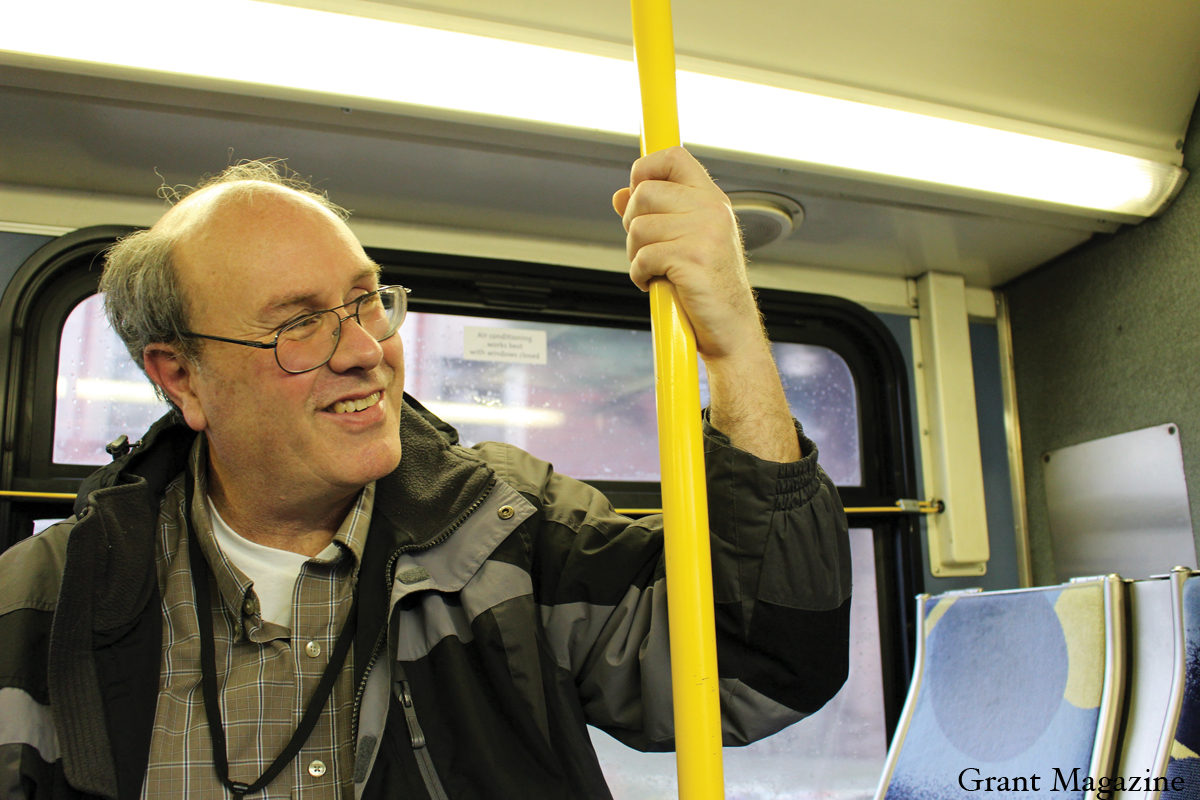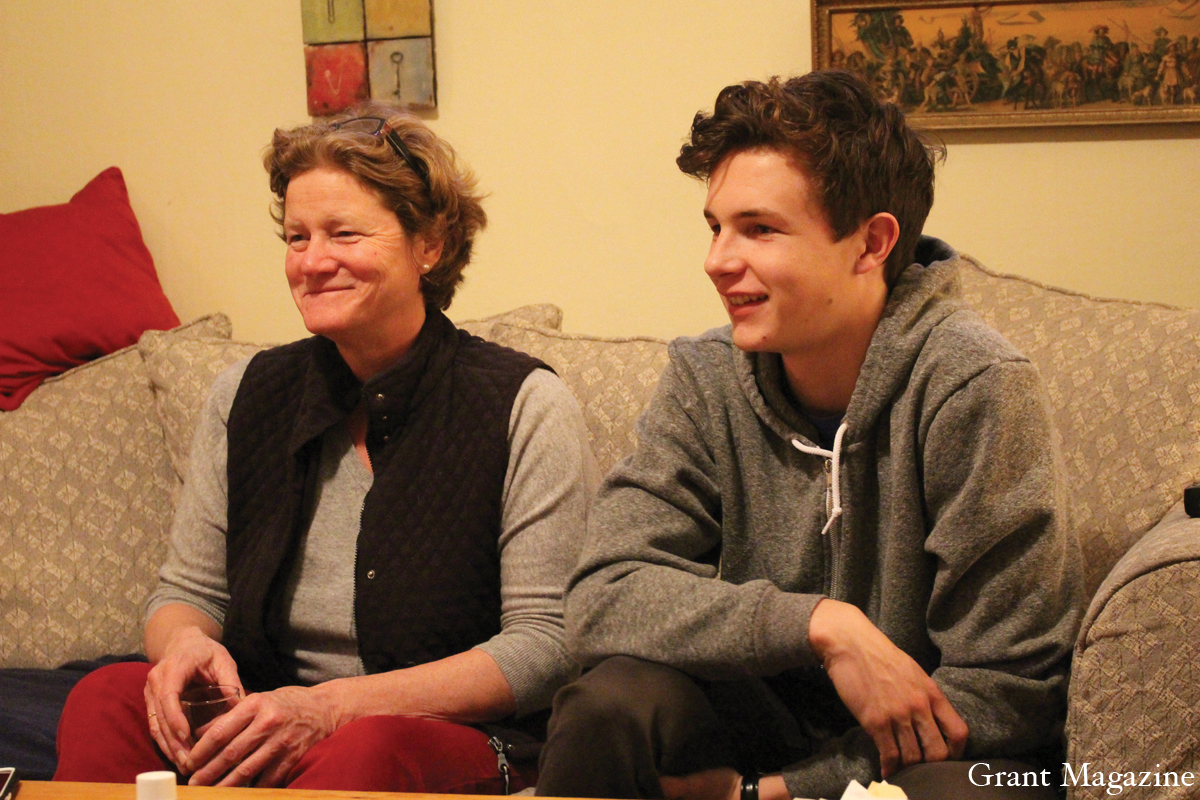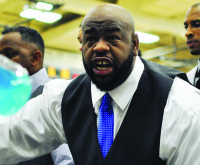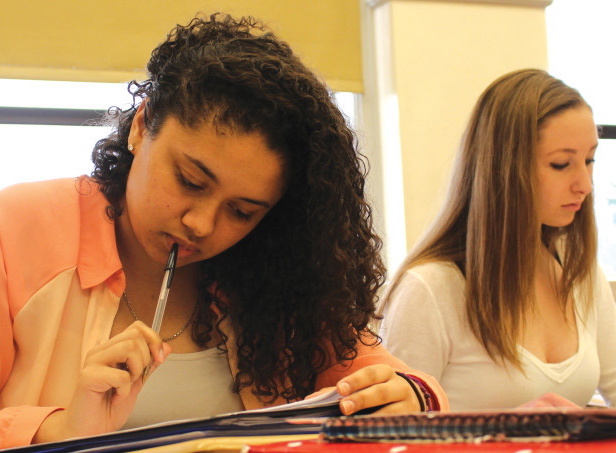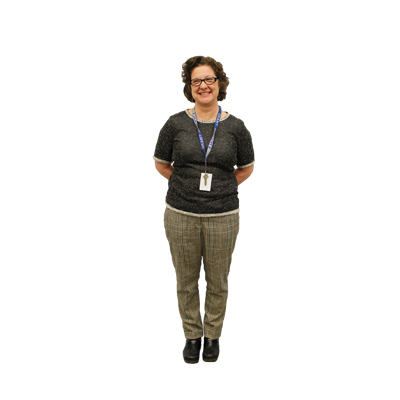
Some kids who take a foreign language think about someday speaking in a foreign country. It’s not like you can do that with Latin. Why take Latin?
That’s right, you can’t. You wouldn’t take Latin because it would be able to lead directly to speaking a foreign language, but it would help you a huge amount if you were going to take Spanish, French or Italian. It would give you a huge head start.
You’ve taught the language for several years now. What got you into teaching it at Grant?
I happened to live down the street from someone who was taking Latin, and her mother asked me to tutor her. And I hadn’t really looked at a Latin book in nearly 10 years, and I loved it. And that was just as the former Latin teacher was retiring. And they were looking for a new teacher, so I applied and got the job.
You grew up in Hanover, New Hampshire. What was that like?
My dad was a professor at Dartmouth…so I kind of feel like I grew up at the college. It’s a totally idyllic place. I also went to high school with a lot of Olympic skiers. In fact, one of my friends and classmates, Jeff Hastings, did the commentary for all the ski jumping in Sochi.
What kinds of things did you do when you were growing up?
I was a figure skater. I was competitive at the local level. But unless you adjusted to a year-round program, becoming nationally competitive wasn’t really an option.
So why didn’t you continue?
I developed bone spurs, so for most of my senior year I was on crutches. Regardless, I never really considered it as a potential career.
I understand you worked in the corporate world for eight years. What kind of stuff did you do?
The main job I had was assistant to the guy who was in charge of all the private banking at JP Morgan. I did a lot of the administrative work. I ran meetings. I kept records. I was a high-level administrative assistant.
Do you ever miss it?
I miss how easy it is. Teaching is so much harder than working in the corporate world. They did these excursions where once a year, you could take a day off. You could play golf or go to a Broadway show and out to lunch. And they paid for it! It was just crazy to me. It was unbelievable.
What’s the hardest thing about teaching?
I think it’s pacing myself. When you’re teaching, unlike other jobs I’ve had, you’re on all the time. You’re working very hard during the day, and then you go home, and you’re not finished yet.
You lived in New York for 15 years. Why’d you move here?
It was kind of a crazy life. I was living with a boyfriend and we broke up. And the reality of living in Brooklyn is that people don’t break up because they can’t afford to move. I thought, ‘Oh man, I could pay for the rent here on my own, or I could look for a cheaper place to live.’ So then I thought, ‘I could just move to Portland. It’d be so much easier.’
Latin is going to be cut next year. Why do you feel it should stay as a class?
Latin is the foundation of our language, our grammar and a lot of our culture. It’s a starting point. It prepares students to learn another language. It prepares them for the SATs. It prepares them to be effective writers and speakers, and it provides an understanding of what our legal system is based on, what some of our science language is based on. It’s been here since the school opened 90 years ago. It’s a huge thing to just throw out.
If it gets cut, what will you do?
There just aren’t any more opportunities for Latin in Portland. My areas of expertise besides Latin are really remedial reading and elementary, so I would probably go to an elementary school. ♦
Check out the rest of our Time With interviews for more brief snapshots of Grant community members.

